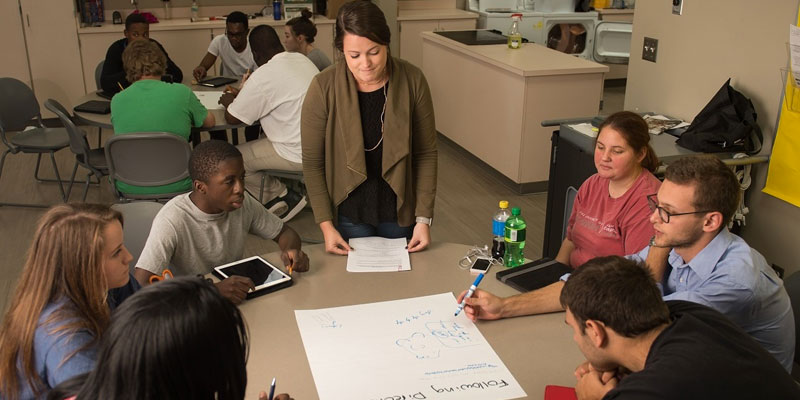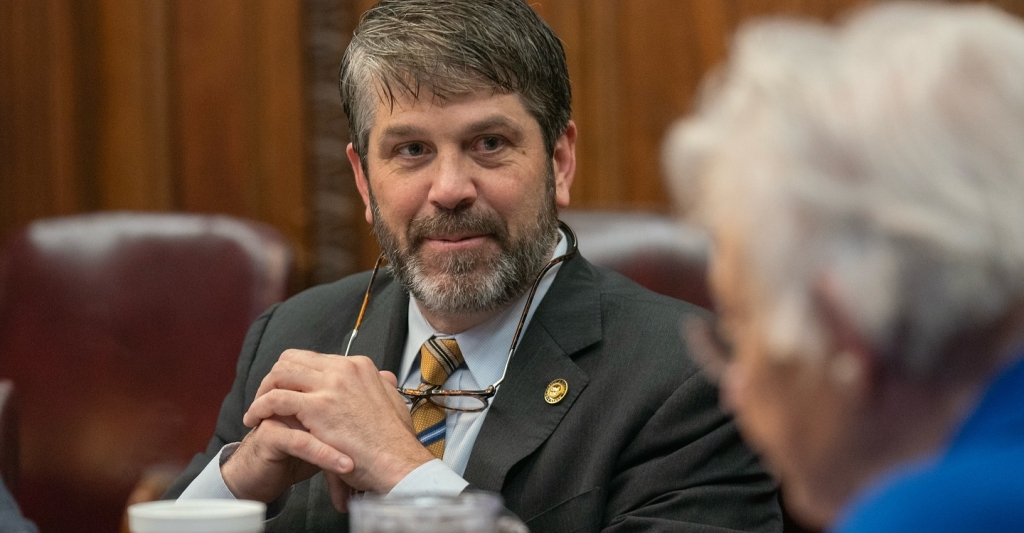The University of Alabama will debut an innovative, year-round academic program for individuals with intellectual disabilities beginning in the fall 2019 semester.
The CrossingPoints Certificate in Occupational Studies is a three-year, non-degree certificate program that will include six students in each annual cohort.
More information, including admissions requirements, costs and course options can be found on the program’s overview page. Applications for fall admission are due July 17.
The CCOS will add a third tier to UA’s highly influential CrossingPoints, an on-campus postsecondary transition program that helps students with significant disabilities develop skills necessary for successful adult functioning. CrossingPoints launched in 2003 and has since added the annual Summer Bridgeprogram to create a pipeline for the new certificate program.
“Creating this certificate program is a milestone for CrossingPoints and UA, and we applaud those who have worked diligently to make this happen,” said Dr. Kevin Whitaker, executive vice president and provost. “It’s been a collaborative effort with many offices on campus providing input and expertise, and we’re excited to make this new program available.”
The certificate program will include 24 UA course hours, 10 CrossingPoints specialized hours and 54 internship hours. The UA courses will include 12 core hours in various classes, like computer applications, public speaking and English composition, as well as 12 additional hours based on students’ interests, preferences and needs.
The customizable course design is unique from similar programs across the country, said Dr. Amy Williamson, CrossingPoints program coordinator.
“We didn’t want students to come in and take classes we think they should take, but the ones they want that will truly lead to a career,” Williamson said. “That’s what college is for.”
The Summer Bridge program helped CrossingPoints build relationships with faculty members to determine the courses that would be available and the individualized grading mechanisms. Summer Bridge has also provided critical data about the range of campus-wide supports needed for this new population of students.
CrossingPoints launched Summer Bridge in 2016 after the United States Department of Education’s Office of Postsecondary Education awarded UA a grant to create an immersive college experience for individuals with intellectual disabilities who are interested in attending college full-time. Summer Bridge students live on campus, enroll in select courses and participate in leisure activities on and off campus. Summer Bridge has had 51 participants in four years.
CrossingPoints faculty have two primary goals for Summer Bridge: empower students to live independently, even if they decide college isn’t for them; and discover what supports the students would need while on campus, and if those supports would be tenable over a three-year program. The wide spectrum of supports ranges from academics and internships to accessibility and independent living. That data is critical, as there are no existing pathways for this population of students from which to model, said Dr. Kagendo Mutua, director of CrossingPoints.
“Summer Bridge has taught us the lesson that, ‘you don’t know what you don’t know until you’ve experienced it,’” Mutua said. “We’ve learned that the supports typically available are great, but by and large, they’re intended for students who’ve met the normative requirements to enter the university. In the data we’ve collected, we’ve learned some things that we’d never thought about, like self-care and social reciprocity, that have shaped what our program will look like.
“We’re excited to welcome a new specialized population to the University of Alabama and we’re ready to support them.”
This story originally appeared on the University of Alabama’s website.
(Courtesy of Alabama NewsCenter)













